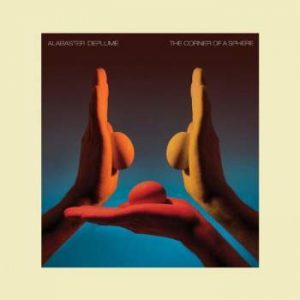
You can look for the company of music for various reasons: you want to hear a sad voice, an angry, youthful version of yourself, or even a funny guy enjoying his life. What is common among all these aspects is that you want to hear human intelligence transform life through art – and this is what Alabaster DePlume (namesake for Angus Fairbairn) is best at.
His take on British folk music, as for all who have released on Lost Map, a small but pivotal Scottish label that has taken Fence’s legacy upon itself, is undefinable but as “his own”, a blend of his multiple proficiencies as writer, film-maker and, of course, as multi-instrumentalist (nylon-stringed guitar, saxophone, etc.).
What has always been with Angus‘s music, despite its apparent and multi-faceted artistic drive, is a strong rooting not only in folk and songwriting traditions, but, more deeply, in an accordingly vivid representation of life. No pretentiousness has ever touched his work, and in this respect it is reminiscent of Seamus Fogarty’s work, who also released his first album on Fence and Lost Map.
The Corner of a Sphere is a new version of his musical and artistic sensitivities. Sometimes, Tom Waits seems to be stretched towards Lynch-ian atmospheres, as Timber Timbre have done recently (‘Be Nice To People’, ‘Did You Ever Hear About The Mau Mau’, the blues-y ‘I Want A Red Car’). The Twin Peaks parallel is a stale one, but in this case it applies, with that feeling of simultaneous, slight displacement and awkwardness and of a search for human fundamentals. Through the bare sounds of instruments sounding almost as generic mechanical objects, one can reflect almost religiously on the basis of human coexistence (‘What Do We Want’).
There is also a pleasant, casual, feeling of improvisation to the record that pulls off some of the weight, bearing the image of a group of friends engaged in an adventurous and somehow sadly light-hearted artistic quest (‘They Put The Stars Far Away’, ‘Is It Enough?’) – in this respect, similarly to what happened in ‘Illinoise’ by Sufjan Stevens.
To sum up, The Corner of a Sphere is a pledge to humanity, not only for its explicit declarations of love for human misdemeanours (‘Be Nice To People’), but also because it represents itself what good and interesting and soulful music mankind can make.
Words: Lorenzo Righetto
